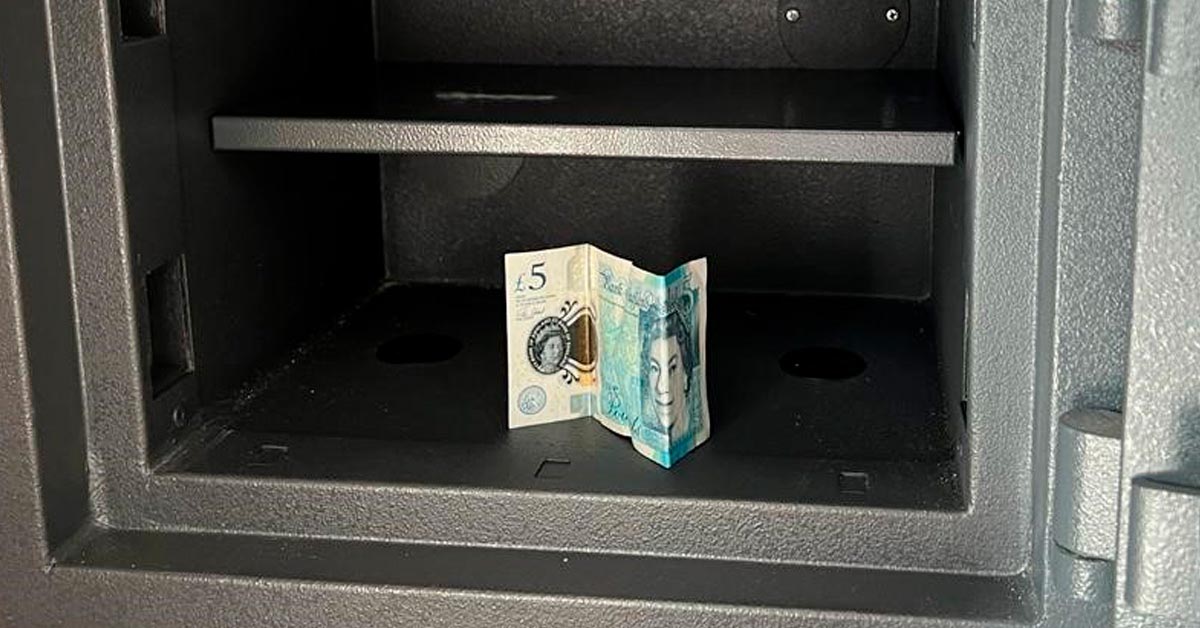Why take risk when you can be paid 5% or more to leave your cash at the bank? Because you’re forgetting about tomorrow, argues head of multi-asset investments David Coombs.

Hoarding Cash
At just about every meeting these days, I get asked how you justify investing in stocks or bonds given the return on cash is so high? At first glance, cash sure does look like a no-brainer.
Hold the front page. Fund manager says “hold on to your cash” shocker.
As always, the right answer is not obvious and it’s not as binary as when cash yields nothing. For someone with a very short-term time horizon, and therefore a very low risk profile, then cash earning 5% will look attractive. Clearly tax is an issue, which I leave to the professionals to advise on case-by-case, yet already we have added a serious complication to the matter in hand. Because a typical higher-rate taxpayer will only receive 60% of their interest payments, so they won’t be getting that 5% cash return unless they are safely ensconced in a tax-free wrapper, such as an ISA.
OK so far, but what about those with longer time horizons – should they stay in cash given the high returns relative to recent history? Again, possibly, however there are other considerations worth taking into account.
Most investments are valued/priced versus the ‘risk-free’ rate (the interest rate payable on cash deposits or very short-dated government bonds), so arguably the case for investing in cash never actually changes. Now that concept could fry your mind, but take a step back and ask yourself some questions.
Plus ça change
When cash was 0.1% were you happy with 1.5% to 2% from high-quality investment grade bonds? You might not be, but most investors were up until two years ago. Remember, many bonds across Europe had negative yields – they lost money if you held them to maturity because they paid such small coupons and had higher prices than the face value that paid out at the end of their life. Despite that stark reality, many people still bought these bonds because they thought they were better than the alternative.
If you retain the roughly 1.5% to 2% ‘spread’, or extra return for the risk that your bond may default, this makes a strong case for buying bonds today yielding 6.5% to 7% . Unless, that is, you think the interest rate for cash is going to 7%. That wouldn’t end well for the housing market. I might argue even 30-year gilts yielding 4.75 to 5% isn’t too shabby, if you think cash rates will end up averaging 3% over the next few decades. Again, tax might make this trade even more interesting, although those rules chop and change too much for me. Professional, personalised advice is always the best port of call.
Turning to stocks, as the cost of borrowing rises so does the reward demanded by shareholders for the risk they take. This typically translates into lower valuations, i.e. investors will pay less today for an expected £1 of profit in the future, so price-earnings multiples fall. Higher borrowing costs are also a headwind for company earnings, as more money is paid out in expenses. I suspect much of this is already priced into stocks today, but you never know until rates peak.
So what if rates have peaked in the US and Europe? This would be good news for equities clearly and we could expect a rally. If rates peak and plateau, then those companies with low or no debt should still do well and may even gain market share from competitors with weaker financial positions. I think this may partly explain why growth companies with no debt have outperformed this year and are the ‘new defensives’. I think it may be a different story in the UK, however.
Plus c’est la même chose
Lots of ifs, buts and maybes. Are you confident about switching out of cash at the right time? At this stage in the rates cycle we expect more volatility in the prices of stocks and bonds as sentiment ebbs and flows. This should throw up opportunities, which I think need to be captured as soon as they arise.
We have built up a lot of cash in our multi-asset portfolio funds and have been happy to hold it, given we’re earning only 0.25% below the Bank of England’s benchmark interest rate. And, of course, our funds receive interest gross of tax; unitholders pay tax only on the distributions they receive and when they sell units. We are being paid to wait, effectively. This means we have cash readily available to take advantage of short-term mispricing in markets.
In our view, cash is a legitimate asset class when rates are high like today, but for longer-term investors there must be a plan to deploy it again. Especially here in the UK today. We think the Bank of England’s massive rate hikes could be more than the fragile British economy can bear – remember that we have more mortgages with shorter fixes than most other advanced nations, so the pain to households from higher rates is likely to hit us quicker than the US and larger European nations. The proportion of UK lenders reporting rising default rates doubled to 30% between the first and second quarters, according to the Bank of England’s Credit Conditions Survey; that’s expected to accelerate to 40% over the summer.
Right now, the UK bond market seems to suggest little faith in the Bank of England’s ability to bring inflation under control without causing a recession. If that downturn comes to pass, the central bank will need to slash rates quickly to cushion the economy – and with it your cash returns. At the same time, the prices of UK government bonds and the safest investment grade bonds would most probably rise, sending their yields much lower. Investors in cash would miss out on those gains from rising bond values and would be left with lower returns for the foreseeable.
This is why we’re holding our cash only as a staging post for quickly taking the opportunities that reveal themselves. We’re not trying to call red over black, or time the market perfectly. History tells us the overwhelming majority of investors cannot. We’re just taking advantage of being paid 5% to keep our powder dry. But our focus is very much on finding good ways to make more than that in markets for years to come.
Tune in to The Sharpe End — a multi-asset investing podcast from Rathbones. You can listen here or wherever you get your podcasts. New episodes monthly.









